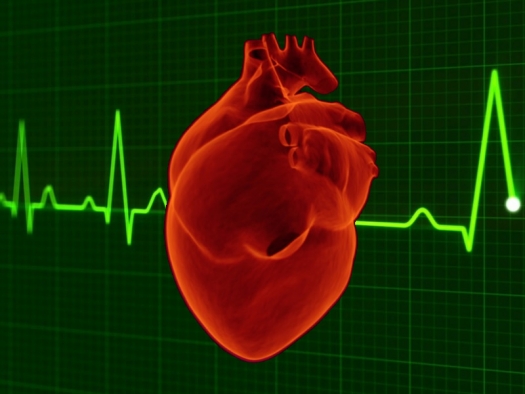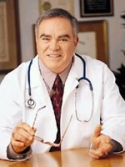HeartEKG.jpg

Heart photo by Raman Oza, CC0 / pixabay.com; Heart pulse photo by PublicDomainPictures, CC0 / pixabay.com
Triumph over heart failure
Denise Darvall was crossing a street in Cape Town, South Africa, when she was hit by a car. Rushed to a hospital in critical condition, she was declared brain dead. In the same hospital, Louis Washkansky, a 53-year-old grocer, was dying of end-stage heart failure. Arrangements were quickly made, and the next day, Dr. Christiaan Barnard performed the first human heart transplant.
Heart transplantation has come a long way since that first surgery 50 years ago, but it’s still a risky and desperate last-ditch treatment for extremely ill patients. But heart failure needn’t progress to such dire stages when it can be slowed, reversed – and prevented altogether.
Problems with the pump
Picture your heart and blood vessels as a plumbing system transporting blood throughout your body. While coronary artery disease is caused by blockages in the pipes, heart failure is a malfunction of the pump. The heart is either too stiff to relax and fill with blood or too weak to squeeze blood out with adequate force, so the amount of blood pumped with each beat (the ejection fraction, as measured by echocardiogram) decreases.
To compensate, the heart beats faster and with more force, which causes it to enlarge and thicken. Over time, the heart can’t pump enough nutrient- and oxygen-rich blood to meet the body’s demands, resulting in symptoms such as fatigue, shortness of breath, swelling/fluid retention in the lower extremities or abdomen, and a dry, hacking cough.
Heart failure can be prevented and early-stage disease arrested by treating underlying causes, which include hypertension, coronary artery and heart valve disease, and cardiomyopathy (damage to the heart muscle by viral infection, toxins, etc.). Sleep apnea, diabetes, obesity, and inactivity are also associated with heart failure.
Another culprit is statin drugs, which in addition to lowering cholesterol also block production of coenzyme Q10 (CoQ10). CoQ10 plays a key role in generating ATP (cellular energy) and protecting the mitochondria against free radical damage. Muscle pain and weakness are notorious side effects of statins, and the body’s most metabolically active muscle, the heart, is not exempt from energy depletion and harm. Several studies implicate long-term statin use in heart failure, but the medical establishment is so bullish on these drugs that this research is largely ignored.
Overlooked treatment options
Cardiologists prescribe an arsenal of drugs for heart failure. They also recommend a low-sodium diet and fluid and alcohol restriction but pay scant attention to other nutritional factors – despite the obvious increased energy demands of an overworked heart and the nutrient losses caused by commonly used drugs.
A nutrient-dense, potassium-rich diet with adequate protein is essential, along with supplemental antioxidants, B vitamins (especially B1/thiamine), vitamin D, and omega-3s. Patients with heart failure are prone to magnesium deficiencies, and at the clinic we routinely administer magnesium by injection or IV to restore levels and control arrhythmias that often accompany heart failure. Iron deficiency is also common and should be tested and treated by a physician.
CoQ10, as noted above, and L-carnitine are required for energy production, and declining levels in the cardiac muscle are linked with increasing severity of heart failure. Studies on each of these supplements demonstrate improvements in symptoms and lower risk of death. Both are beneficial, but my clinical experience suggests that high-dose CoQ10 may be the single most effective therapy for heart failure.
For more serious disease, I recommend EECP (enhanced external counterpulsation). Developed 60 years ago to support failing hearts, this noninvasive therapy rhythmically squeezes blood up from the lower extremities in sync with the heartbeat. Also a proven treatment for angina, EECP reduces the heart’s workload, enhances arterial health, promotes the growth of new blood vessels around existing blockages, and provides enduring improvements in heart function, exercise capacity, and quality of life.
Back from the brink
This multifaceted approach has helped hundreds of Whitaker Wellness patients suffering with heart failure. Ann, who first came to the clinic in 2014, arrived in a wheelchair, overloaded with fluids and struggling to breathe. Despite multiple hospitalizations and maximum dosages of 15 medications, her ejection fraction was dangerously low at 20 percent, and her doctors back home told her she wouldn’t last more than a year or two.
After completing 35 EECP treatments, along with supplemental oxygen and an intensive nutritional regimen, she felt like a new woman. Her energy rebounded, she no longer needed the wheelchair, and three months later, her ejection fraction was a near-normal 48 percent. Ann returned to the clinic last year, and her heart was doing just fine. She had discontinued most of her meds, made drastic changes in her diet and lifestyle, was 90 pounds lighter – and was convinced these therapies saved her life.
She’s probably right. One in five Americans will develop heart failure in their lifetime, and half will die within five years of diagnosis. Everyone needs to be aware of this increasingly common condition, address risk factors, and pay attention to early warning signs. Decide once and for all to take control of your health so you can live life to its fullest.
My recommendations
- Suggested supplements, taken daily in divided doses, include:
- Coenzyme Q10 300-400 mg (100 mg for prevention)
- L-carnitine 2-3 g
- Magnesium 500-1,000 mg
- Fish oil EPA/DHA 1-2 g
- Thiamine 50-100 mg
- Vitamin D3 2,000-5,000 IU
- A high-potency daily multivitamin
- Iron should be tested and prescribed by a doctor
- To locate an EECP provider visit VasoMedical.
- To learn more about treatment of heart failure at Whitaker Wellness, call 800-488-1500.
References
Gaby AR. Nutritional Medicine, Second Edition. Fritz Perlberg Publishing, Concord, NH. 2017.
Okuyama H, et al. Statins stimulate atherosclerosis and heart failure: pharmacological mechanisms. Expert Rev Clin Pharmacol. 2015 Mar;8(2):189-199.
Raza A, et al. EEEP therapy: past, present, and future. Cardiol Rev. 2017 Mar/Apr;25(2):59-67.


